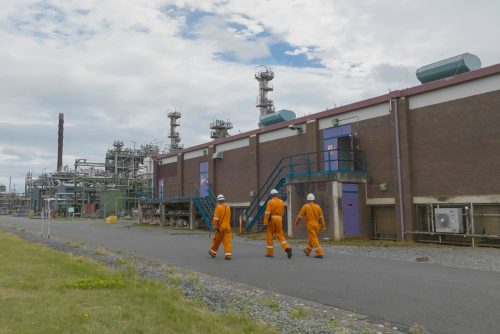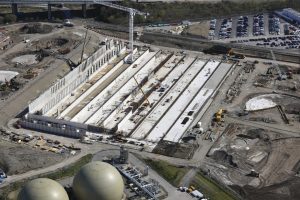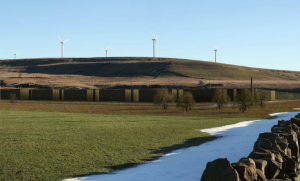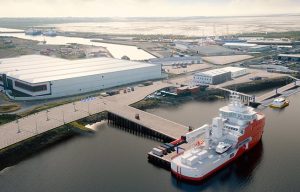Financial close reached for Liverpool Bay carbon capture and storage project

Italian energy company, Eni, has reached financial close with the UK Government’s Department of Energy Security and Net Zero (DESNZ) for the Liverpool Bay CCS (Carbon Capture and Storage) project.
Eni is the operator of the CO2 transport and storage system (T&S) of the HyNet industrial cluster and the financial close allows the Liverpool Bay CCS project to move into the construction phase, unlocking key investments in supply chain contracts, the majority of which will be spent locally.
The project will support the UK’s industrial competitiveness for the long term, by safeguarding existing industrial employment and creating new production chains and jobs – which, in the construction phase alone, are estimated to be about 2,000 people.
This significant milestone follows the Government’s funding allocation of £21.7bn to be invested over a 25-year period across the first two CCS Clusters in the country, on Merseyside and Teesside.
The Government’s funding covers the granting of an Economic License for the Liverpool Bay CO2 T&S project at the Point of Ayr gas terminal.
The project is reusing the depleted gas reservoirs, operated by Eni, in Liverpool Bay.
Secretary of State for Energy Security and Net Zero, Ed Miliband, said: “Today we keep our promise to launch a whole new clean energy industry for our country – carbon capture and storage – to deliver thousands of highly skilled jobs and revitalise our industrial communities. This investment from our partnership with Eni is government working together with industry to kick-start growth and back engineers, welders and electricians through our mission to become a clean energy superpower.
“We are making the UK energy secure so we can protect families and businesses and drive jobs through our Plan for Change.”
Eni CEO, Claudio Descalzi, said: “The strategic agreement with the UK Government paves the way for the industrial-scale development of CCS, a sector in which the United Kingdom reaffirms its leadership thanks to the promotion of a regulatory framework that aims to strengthen the development of CCS and make it fully competitive in the market.
“Eni has established itself as a leading operator in the UK thanks to its key role in CO2 transport and storage activities as the leader of the HyNet Consortium, which will become one of the first low-carbon clusters in the world.
“CCS will play a crucial role in tackling the decarbonisation challenge by safely eliminating CO2 emissions from industries that currently do not have equally efficient and effective solutions.”
He added: “Eni confirms its position at the forefront in the creation of this new, highly sustainable business linked to the energy transition.”
The Liverpool Bay CCS project will operate as the backbone of the HyNet Cluster to transport carbon dioxide from capture plants across the North West of England and North Wales through new and repurposed infrastructure to safe and permanent storage in Eni’s depleted natural gas reservoirs, located under the seabed in Liverpool Bay.
The project itself foresees the efficient repurposing of part of the offshore platforms as well as 149km of onshore and offshore pipelines, and the construction of 35km of new pipelines to connect industrial emitters to the Liverpool Bay CCS network.
HyNet is one of the world’s most advanced CCS clusters that will significantly contribute to the reduction of emissions from a wide range of industries across the North West of England and North Wales.
This includes companies involved in cement manufacturing, energy from waste plants, low-carbon hydrogen production, as well as additional industrial players who will connect to Eni’s infrastructure.
With a storage capacity of 4.5 million tonnes of CO2 per year in the first phase, and the potential to increase to 10 million tonnes of CO2 per year in the 2030s, Eni’s CO2 T&S system will make a significant contribution towards achieving the UK’s CCS ambitions.
Construction of the project is expected to commence this year, ready for planned start-up in 2028, in line with industrial emitters in the HyNet Cluster.
Eni believes that CCS will play a crucial role in the energy transition and can become an important strategic activity to support the company’s decarbonisation ambitions.
The company has a range of global initiatives in the CCS sector with a gross storage capacity of approximately three billion tons.








